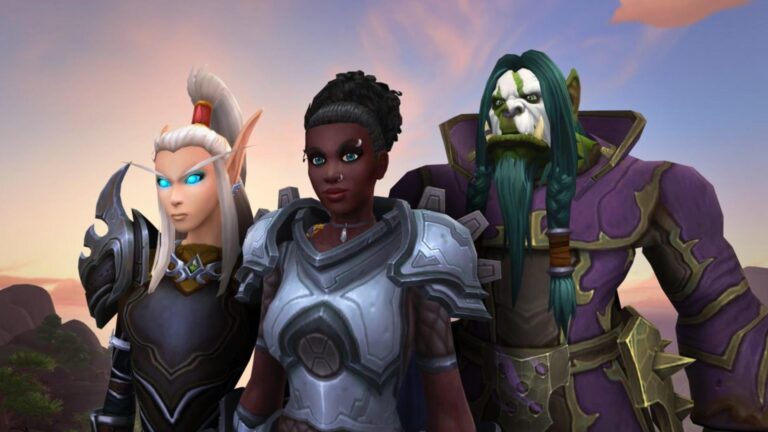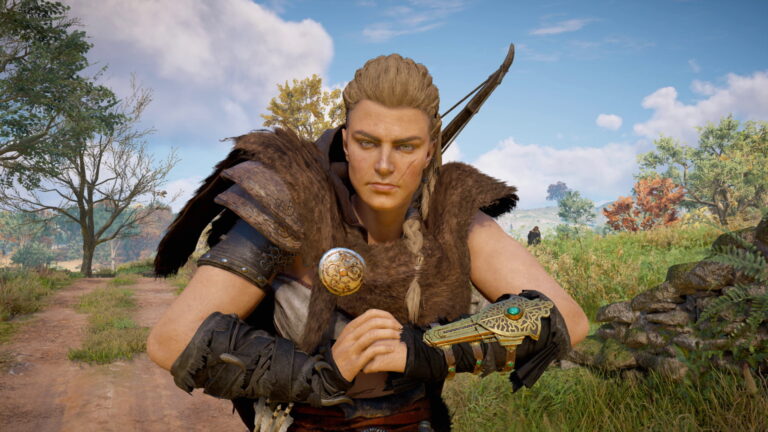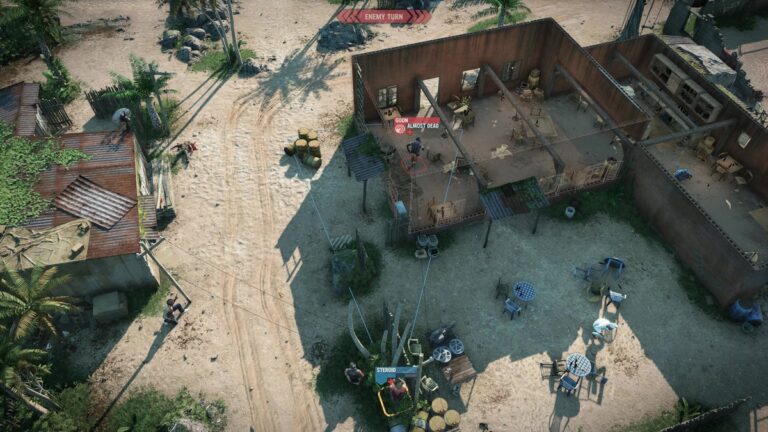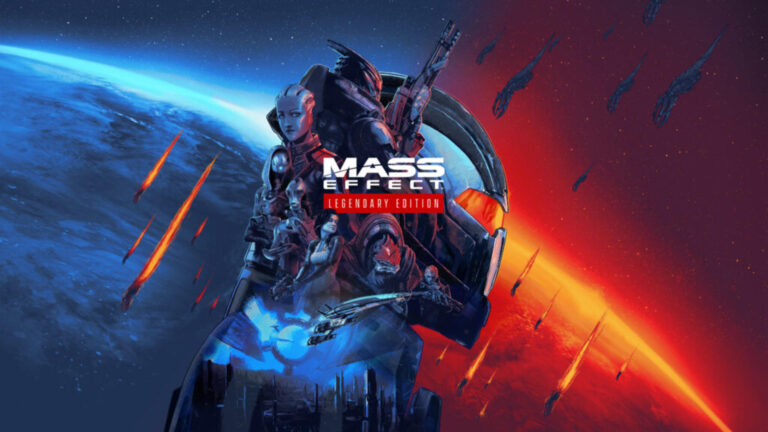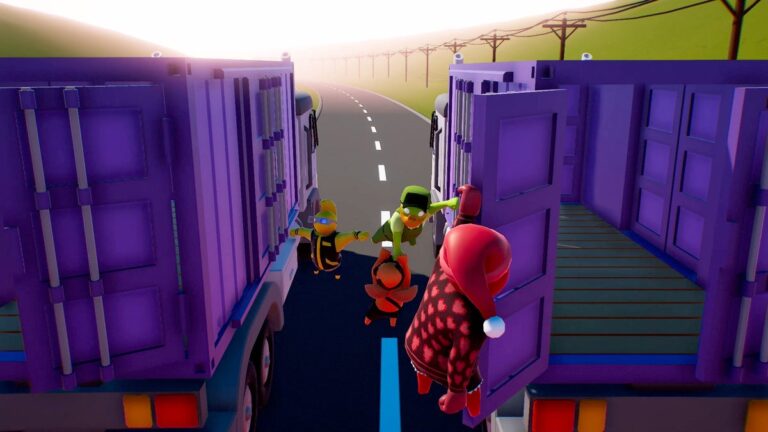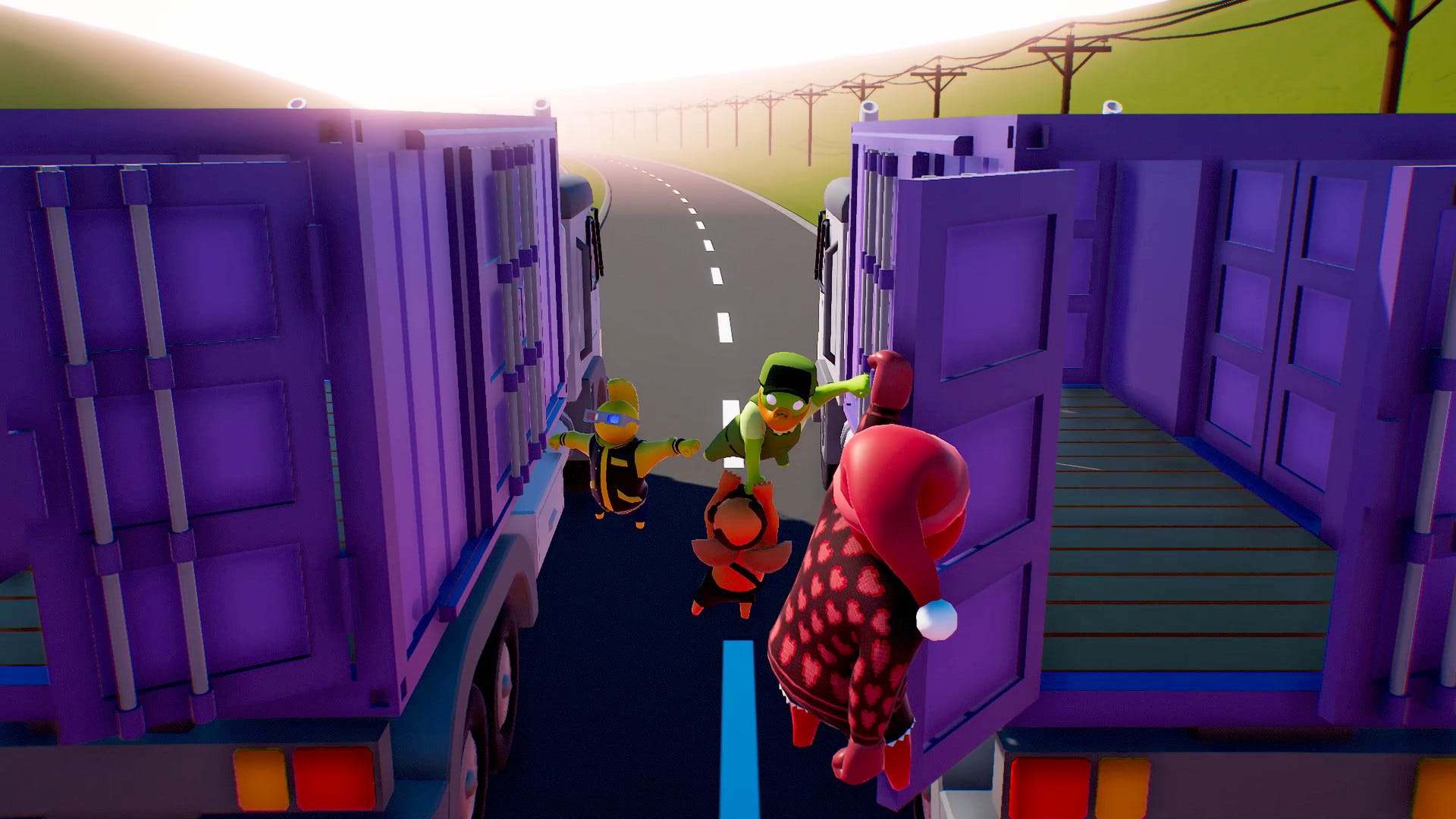One of the sillier aspects of the original Dragon’s Dogma was accidentally falling head over heels for some rando innkeeper, and having them appear beside you as your sweetheart during the ending scenes, much to the surprise of many players who didn’t realise they were hitting on every NPC they did a favour for.
The game’s Affinity system saw NPCs organically forming an attachment to players when you interacted with them, gave them things or carried out tasks for them. Towards the conclusion, one NPC is selected as “Beloved” and promptly abducted by a dragon for you to quest forth and rescue. There are a few characters who are positioned more obviously as romanceables, but the brilliance of the system is that you can raise your Affinity with pretty much anybody. If you want to finish the game staring passionately into the eyes of the court jester or that hearty bloke who runs the armour shop, it’s within your power.
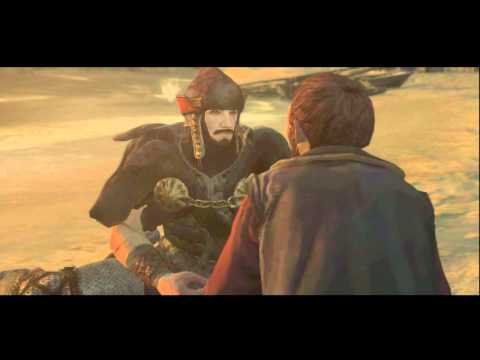 Dragons Dogma – Caxton Love?
Dragons Dogma – Caxton Love?
The Affinity system returns in Dragon’s Dogma 2 and is considerably more involved, according to series director Hideaki Itsuno. “There will be a lot of it, and it will be even more pronounced,” he told Automaton in a new interview today. “It’s almost the entire reason why we made the game open world.
“There will be many events that occur [or] don’t occur depending on Affinity, and relationships between NPCs will also be important,” Itsuno added. “For example, if you raise your Affinity with the parent of a child, your Affinity with the child will increase as well. On the other hand, NPCs can also fall out with each other. We’ve “powered-up” the Affinity feature a lot… and sneaked in a lot of things.”
The sting in the tail here is that Dragon’s Dogma 2 NPCs aren’t just sympathetic emotional beings, they’re also eminently killable. “Our basic premise since the start of the series has been ‘creating a fantasy world simulator,’ so NPCs dying is a normal occurrence,” Itsuno commented later. “If there’s an NPC you care for in a town, you will need to protect them as you fight, or hold them and run.”
That’s “hold them and run” not as in “cling together desperately in the face of a dark world” but “throw them over your shoulder like a sack of potatoes and gallop off into the woods”. Picking people up in Dragon’s Dogma is as effective a means of safeguarding treasured NPCs as it is removing stubborn guards from checkpoints.
Should an NPC die, you are able to resurrect them using a Wakestone, but Wakestones aren’t exactly growing on trees, and Capcom’s hope is that the threat of losing your favourite villagers will teach you to play kindly. “When there is death, we take it seriously, and it affects how we act,” producer Yoshiaki Hirabayashi commented, in what I consider to be a slightly unnecessary unpacking of how most human beings feel about dying. “In a world without death, I think people would be irresponsible and apathetic to their own actions.”
“Death makes us feel a sense of danger,” Hirabayashi went on. “Dragon’s Dogma 2 contains many aspects that leverage this tense relationship with death. For example, you come across a cliff – you could make a shortcut by leaping down, but you cannot be sure if you will die or not. You can choose to take the risk or to avoid it. In this way, the height of the cliff becomes meaningful to the player.”
“I believe that death is an irreversible event, so there’s a heavy emphasis on whether or not a player dies in the action part of the game,” Itsuno added. “This is because the notion that ‘if you die, you can just start over’ compromises the feeling of adventure. A feeling of adventure equals the feeling that you might die – this is a sentiment shared by the whole development team. The possibility of death is what makes you scared and what makes you careful. The effort not to die is what creates the process of trial and error.”
Well, sure, I guess. I have to confess, I think of Dragon’s Dogma 2 more like a sprawling ballpit full of griffons than a sobering illustration of mortality, but I’m keen to see what comes of all this, and of the expanded Affinity system. Please, don’t let me accidentally fall in love with the innkeeper again.

